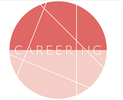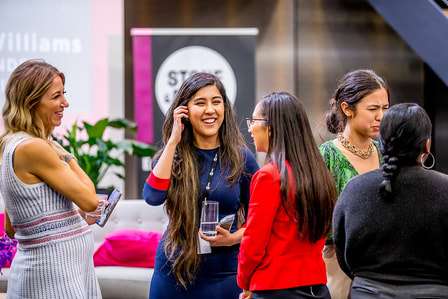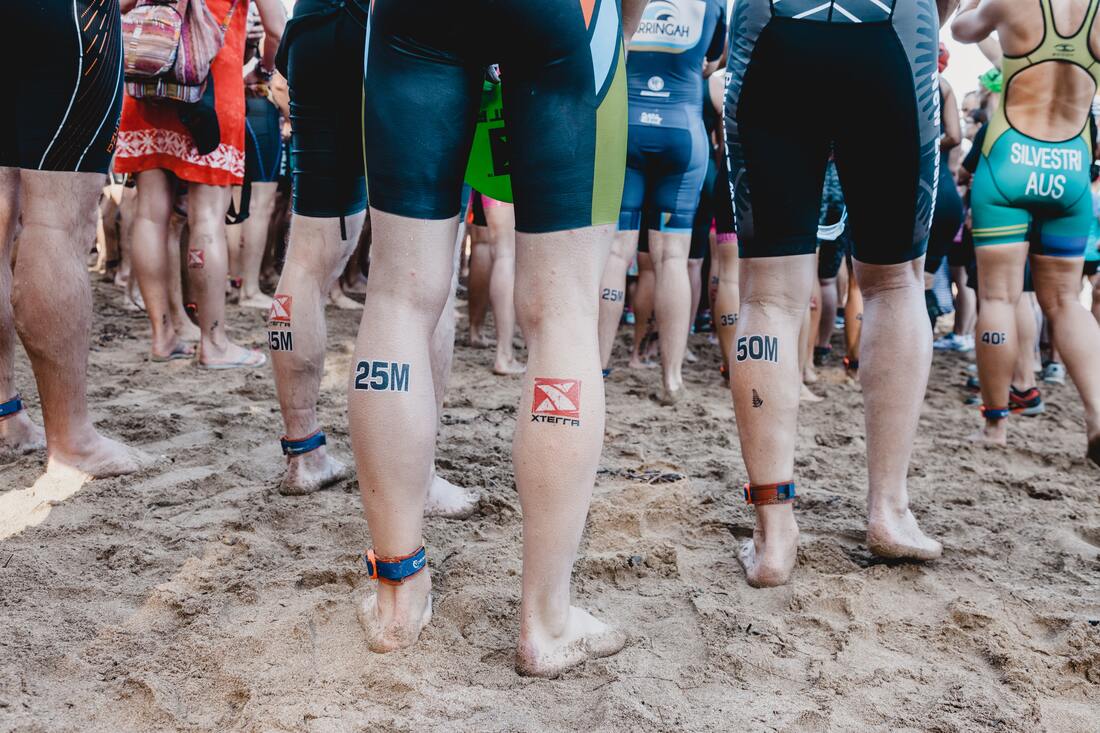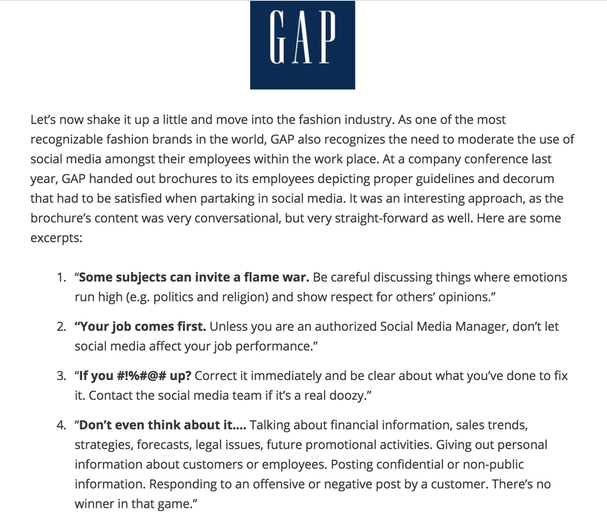Words, Ideas, StuffSome ideas and thoughts, captured with the view to help you.
|
|
Anyone else break into a cold sweat at the thought of walking into a room of strangers knowing you just might have to force an intro and mingle? Odds are some of you will break into a sweat and others will be smiling ear to ear and will thrive in that environment. Most likely, it’s a situation we’re all going to have to navigate. It’s up to us to choose how we show up and how we answer the inevitable “What do you do?” question. Once we’ve uttered something, we’ll also likely return the serve. Anticipating this and knowing What about day one of the new job? Terror or titillation? It’s natural to put a tad too much emphasis on what the ‘right’ thing to do is in these environments. Where its new and we’re wanting to make a good impression. It’s risky and an unknown, and we can tie ourselves up in knots in advance playing out scenarios, yet, we can prepare in a different way, one that will keep our autonomic nervous system under control. Because there is no ‘right’ way. There might be an outcome you’d love to achieve, a perception you’d like to create, a connection you want to make – great to have intentions, and you’re prepped ready to do. Let’s chat a bit about what that can look like. “What you do will never define you for long. There’s so much to unpack in Abby’s quote. The clear message is gold - our character, not our ‘title’, is what’s important. It also is a wonderful prompt for us to consider how we answer that “what do you do” question. We don’t have to answer with our title – be that student, Professor, parent, dancer, artist or founder. Of course we can, especially if it’s something we love to chat about. If we’re keen to connect on that topic, we can do so by giving a little insight into what it is that we enjoy about our work or what makes our approach a little different. That allows the person we’re connecting with some grounds to develop the conversation too or find points for deeper connection. “I work as a personal trainer” compared with “I help people achieve their amateur athletic goals” “I’m learning to code Ruby on Rails” “I’m designing software that X and Y” or “I was inspired by Z so now I’m learning to code so I can …” This reminds me of a lovely lady I met at the Hi Tech Awards Event in Auckland in 2021. We did chat about work, I did ask her that question and she said ‘I’m just in sales” … luckily we had a laugh when I realised I had fallen into the easy trap of asking that question, but also chatted about how that word ‘just’ is dangerous. We talked about both of those points, and why in New Zealand we see sales as ‘less than’ and in many company structures, sales teams aren’t celebrated and we’ve somehow bought into the stereotype that sales people are untrustworthy. This is an area I do have a lot to say on, but this probably isn’t the right chapter or even the right forum! Let’s just say that yes, it’s an unregulated space, not all sales people are the same, some sales professionals are awesome at what they do, bring professionalism and expertise, and genuinely focus on ensuring patients or customers receive the value they expect. It’s important to remember too that without sales professionals, many organisations won’t succeed as without delivering services or exchanging value for goods, many organisations don’t have income, and it’s near impossible to stay afloat without that! An article on The Muse reminds us that the “what do you do?” question is actually a shortcut to deciding who someone is, and we all make sweeping assumptions from the response. Their article gives these examples: “You Say: I’m in sales. They Think: You’re a pushy, sweet-talking charmer. You Say: I’m a lawyer. They Think: You’re the argumentative type. You Say: I’m an accountant. They Think: You’re a numbers geek.” Back to the Hi Tech Awards and meeting Melisa. She is a really articulate, dynamic, capable and successful salesperson for an AI startup. The more we talked, the clearer it was that she was passionate about doing the right thing by her customers, them having awesome experiences, and her venture’s savvy technology. So we talked about all of that. We really clicked and even shared an Uber after the event. Imagine if we hadn’t stayed in that chat – we would have missed that chance to connect with an inspiring woman doing cool shit, and I know I got a lot from meeting her. I’ve also just checked her LinkedIn bio some nine months later, and it’s such a goodie. Melisa’s intro is how we can choose to introduce ourselves digitally or in person – it’s so engaging, and there’s a fair few things in here for others to connect in with. Most importantly, it’s authentic. This is who Melisa is. “What makes me unique is my obsession with doing things well. Mastery is about not sacrificing everything to get to the finish line, it’s how we get there. I’m a proud sales professional who has a personal interest and curiosity in using data, innovation and technology well, both in our personal and professional lives” We can choose to offer up a work or career related response, but we don’t have to. We can answer however we choose. Maybe answer with the thing you’re passionate about right now? Things like …
If you want to chat about work, do that, if you want to share something else, just know it’s okay to do that instead. Often when we’re asking someone “What do you do?” it’s less about seeing if there’s a chance to do business, and more about finding some common ground. Same with the “where are you from?” one too. This one needs a little chat too – it’s a question that can seem insensitive in some contexts, especially now we live in a gloriously multi-cultural society, so a word of wisdom from one experience I had. A few years ago I did a lot of volunteering for the Christchurch Women’s Refuge (now Aviva) and worked for them one weekend on a promo stand at an event. This was alongside other volunteers, and one lady I worked with was warm, upbeat, engaging and super fun – we chatted effortlessly between engaging with people at the stand, and at the end of the day she thanked me for not asking where she was ‘from’, as to her, that felt like she was not ‘from here’ and impacted her sense of belonging. Now I’d love to claim this as a conscious choice not to ask, but from memory, it was perhaps more that there were so many more interesting things to ask her as she was a vivacious and accomplished lady. It has always stuck with me how a question, even one asked with the best intentions from our own perspective, can unintentionally alienate someone or remind them of their ‘Otherness”. “The creation of otherness (also called ‘othering’) consists of applying a principle that allows individuals to be classified into two hierarchical groups: them and us.” Source: https://www.sciencedirect.com/topics/social-sciences/otherness
So without meaning to, a simple question can actually push someone further away from you when during dialogue you’re actually seeking to form a connection, or at least pass the time in a pleasant way. Not saying this question is to be avoided, just be mindful when you ask it and what your motive for doing so is. The hot tip before you roll into the room:
0 Comments
One of the super grey areas in today’s tech driven world is - how does social media fit with our personal brands, and with that of our employer* brands? (*employer and workplace can be interchanged with causes you volunteer for, committees or groups you’re part of etc) Society today is diverse, we move towns, countries and companies faster than ever before, which means (thankfully) workplaces today are (hopefully!) more diverse. Not only do diverse workforces include people of different ages, cultures and races, they will also include diversity of thought (hurrah!). That usually means that thought diversity may well include a wide range of views on the use of, and opinions on, social media personally and for business, or while at work. While the definition of ‘at work’ is now more varied than ever (compare the ‘workplace’ of a park ranger with that of an entrepreneur!), the only sense-check should be with that of your employer. The entity that pays your salary, that you have agreed to perform certain tasks and duties for, is the only view that matters as that’s the one that could land you in hot water if you unintentionally breach the policies. A heads up — it might be different to your own view so it does pay to check). Initiating the conversation, being proactive about checking what their view is, is a safe guard for you so you don’t inadvertently cross a line or share a trade secret while using tools and tech you enjoy. Check with the company and your manager on their policy and preferences for using social while at work and what content may/may not be shared via social networks — some companies greatly encourage their crew to share their own work, insights and work stories online, others will be at the other end of the scale. There’s a lot of chat about the risks of social at work, certain industries are of course more focused on protecting their ideas, IP and privacy, so do consider this. If you’ve not come across this before, here’s the view many organisations and entities have — social activity, however innocent it may seem, can impact the brand and reputation, and scary to note that some hackers use social intel to aid criminal activity. So you can see why it’s a big deal for many brands! Businesses need good social media policies to manage risk, and in 2017, it was reported that the Marsh Directors’ Survey of Risk shows that “62% of respondents expect the increasing influence of social media will affect their business over the next 12 months. It ranked ahead of other risks such as problems with talent attraction and retention.” So it’s likely on the radar of the organisation, and if it’s not, it should be! If you think the policy is outdated or there’s not one, you can be a change maker and evaluate what the up and downside could be, and shape a new view. Be sure to include what content is and isn’t okay to share, and what to do if the proverbial shxt hits the fan! When looking at examples of policies, GAP’s one is always touted, Hire Rabbit is reported to say: While we’re chatting about GAP (pls note this is not an endorsement, nor is Careering in any way affiliated with them) but through doing our research we know they also have some great content on their careers section that aligns perfectly with the messages in this book about knowing, and asking for, your worth. So here’s another excerpt from them … “IT’S OBVIOUS WHEN 21% OF YOUR OUTFIT IS MISSING. BUT WHAT HAPPENS WHEN 21% OR MORE OF YOUR PAYCHECK IS MISSING? That’s the reality for most women across the U.S. who earn, on average, 79 cents to every dollar men make. And for non-white women, it can be even worse — African American women, on average, earn 60 cents compared to every dollar men make, and Latina women earn approximately 55 cents. Many millennial women don’t think the gender pay gap applies to them. But even if you’re a woman at the start of your career, statistics show that the gender pay gap is likely to impact you. This is concerning — especially because the pay gap widens as you progress through your career.” While their research is US based, there’s a lot of merit to it and the insights do reflect global trends. You can read more here and complete their calculator which shows you just how much money you stand to lose over the course of your career if you’re paid that 21% less (the US average is $450,000 less than male equivalents. That’s an apartment in Auckland, or a mansion in Westport! While your circumstances may differ, we just wanna say that equal pay for an equal day’s work just makes sense.  Anywho, back to social. Social media can be a powerful tool, especially for businesses that embrace and channel everyone’s enthusiasm. Hubspot data shows that content shared from employee’s personal social accounts about the brand or entity, can achieve 8x more engagement. Reebok have really embraced this - check out their #fitasscompany content. The trick to making this work for your startup, community or company is to be clear about the same things mentioned above: Be sure to include what content is and isn’t okay to share, and what to do if the proverbial shxt hits the fan! It’s also great if you can drive a campaign to get everyone sharing the content, and track it with a hashtag like Reebook did. When it comes to social media and the workplace, there’s no ‘one size fits all’ sorry. It all comes down to what’s appropriate for you and for the organisation, and for the situation. Safety and commonsense must come first, and this quote sums it up quite well what we mean here (excuse the language): “Behind him, he heard Ronan say, "I like the way you losers thought Instagram before first aid. F**k off.”
― Maggie Stiefvater, Blue Lily, Lily Blue. |
Categories
All
AuthorMelissa Davies Archives
January 2024
|





 RSS Feed
RSS Feed